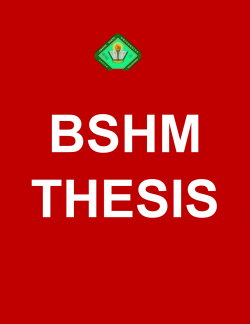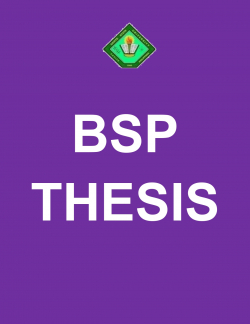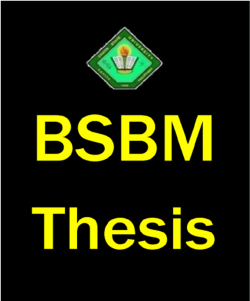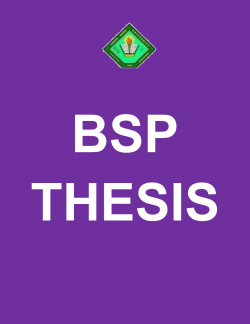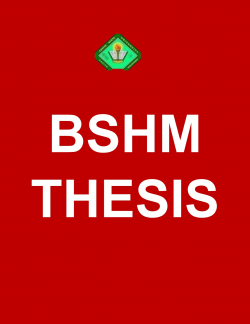The Pandemic Generation: Assessing Career Preparedness and Employability Skills Among Fourth-Year Hospitality Management Students of Cavite State University - Bacoor City Campus.
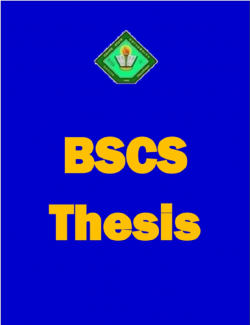
Type
Thesis
Category
Publication Year
2025
Subject
Hospitality Industry — Management. Vocational Guidance. Career Development. Employment — Vocational Guidance.
Abstract
The study entitled “The Pandemic Generation: Assessing Career Preparedness and Employability Skills among Fourth-Year Hospitality Management
Students at Cavite State University – Bacoor City Campus.” This study aimed to determine the level of career preparedness and employability skills among fourth-year hospitality management students at Cavite State University – Bacoor City Campus. The researchers evaluated if there was a significant relationship between the students’ career preparedness and employability skills. This study is anchored on the Social Cognitive Career Theory (SCCT), which was initially developed by Robert W. Lent, Steven D. Brown, and Gail Hackett. The nature of this study was quantitative and descriptive-correlational research design was also utilized to systematically obtain information and describe if there was a significant relationship between the students’ career preparedness and employability
skills. This study involved a total population of 311 fourth-year students enrolled in the Bachelor of Science in Hospitality Management Program during the first semester of the academic year 2024-2025. Using Taro Yamane's formula with a 5% margin of error, a sample of 175 participants was drawn from the total population. Simple random sampling was employed to select these participants to give easy access, equal chances, and guarantee fairness. Data gathering was conducted through survey questionnaires and secondary sources such as related literature, research studies, articles, and journals. The questionnaire included a Likert scale used to interpret the level of students’ career preparedness and employability skills. The survey questionnaires were administered through Google Forms to collect data, with the researchers overseeing the process to ensure accurate recording of responses and effective data management. Appropriate statistical treatment was applied, including percentage, weighted mean, and Pearson r to analyze the data and yield substantial results and findings. The result showed that most of the participants, who made up the majority, were female students in the age bracket of 21 to 25 years old. The participants generally feel prepared and employable for their future careers. Their confidence in their hospitality-related and teamwork skills significantly contributes to their overall
preparedness and employability to enter the workforce. However, they feel somewhat confident in their numeracy skills, which could suggest a need for further development in this area to improve their overall employability. The result also revealed that there was a significant relationship between the students’ career preparedness and employability skills, highlighting that communication skills and generic skills are the most correlated among the key variables, which provides the researchers a reason to reject their null hypothesis. The researchers recommended conducting a study on the reason behind the low male enrollment in the program and creating initiatives such as targeted outreach programs that would cater to their specific needs to attract more male participation in
the program. To fully enhance the overall career preparedness and employability skills of the students, the researchers recommended providing more practical training, such as internships and workshops, and partnering with the industry professionals that would offer mentorship programs focusing on numeracy skills, which were areas identified as needing more attention. The researchers also recommended to the future researchers to include additional variables to further in-depth the assessment of career preparedness and employability skills among hospitality management students.
Students at Cavite State University – Bacoor City Campus.” This study aimed to determine the level of career preparedness and employability skills among fourth-year hospitality management students at Cavite State University – Bacoor City Campus. The researchers evaluated if there was a significant relationship between the students’ career preparedness and employability skills. This study is anchored on the Social Cognitive Career Theory (SCCT), which was initially developed by Robert W. Lent, Steven D. Brown, and Gail Hackett. The nature of this study was quantitative and descriptive-correlational research design was also utilized to systematically obtain information and describe if there was a significant relationship between the students’ career preparedness and employability
skills. This study involved a total population of 311 fourth-year students enrolled in the Bachelor of Science in Hospitality Management Program during the first semester of the academic year 2024-2025. Using Taro Yamane's formula with a 5% margin of error, a sample of 175 participants was drawn from the total population. Simple random sampling was employed to select these participants to give easy access, equal chances, and guarantee fairness. Data gathering was conducted through survey questionnaires and secondary sources such as related literature, research studies, articles, and journals. The questionnaire included a Likert scale used to interpret the level of students’ career preparedness and employability skills. The survey questionnaires were administered through Google Forms to collect data, with the researchers overseeing the process to ensure accurate recording of responses and effective data management. Appropriate statistical treatment was applied, including percentage, weighted mean, and Pearson r to analyze the data and yield substantial results and findings. The result showed that most of the participants, who made up the majority, were female students in the age bracket of 21 to 25 years old. The participants generally feel prepared and employable for their future careers. Their confidence in their hospitality-related and teamwork skills significantly contributes to their overall
preparedness and employability to enter the workforce. However, they feel somewhat confident in their numeracy skills, which could suggest a need for further development in this area to improve their overall employability. The result also revealed that there was a significant relationship between the students’ career preparedness and employability skills, highlighting that communication skills and generic skills are the most correlated among the key variables, which provides the researchers a reason to reject their null hypothesis. The researchers recommended conducting a study on the reason behind the low male enrollment in the program and creating initiatives such as targeted outreach programs that would cater to their specific needs to attract more male participation in
the program. To fully enhance the overall career preparedness and employability skills of the students, the researchers recommended providing more practical training, such as internships and workshops, and partnering with the industry professionals that would offer mentorship programs focusing on numeracy skills, which were areas identified as needing more attention. The researchers also recommended to the future researchers to include additional variables to further in-depth the assessment of career preparedness and employability skills among hospitality management students.
Description
This quantitative, descriptive-correlational study assessed the level of career preparedness and employability skills among fourth-year Hospitality Management students at Cavite State University – Bacoor City Campus during the first semester of the 2024–2025 academic year. Anchored on the Social Cognitive Career Theory (SCCT), the study involved 175 randomly selected participants from a total population of 311 students. Data were gathered through Likert-scale surveys administered via Google Forms, and analyzed using percentage, weighted mean, and Pearson correlation. Findings revealed that most participants felt prepared and employable, especially in hospitality-related and teamwork skills, though numeracy skills showed room for improvement. A significant positive relationship was found between career preparedness and employability skills, particularly communication and generic skills. The researchers recommend targeted outreach to address low male enrollment, enhanced practical training, industry mentorship focusing on numeracy, and further studies incorporating additional variables.
Biblio Notes
Aboc, E. M., Borleo, V. B., Lenis, E., & Nocal, C. V. R. (2025). The pandemic generation: Assessing career preparedness and employability skills among fourth-year Hospitality Management students at Cavite State University – Bacoor City Campus (Undergraduate thesis, Bachelor of Science in Hospitality Management). Cavite State University – Bacoor City Campus, City of Bacoor, Cavite.
Number of Copies
1
| Library | Accession No | Call No | Copy No | Edition | Location | Availability |
|---|---|---|---|---|---|---|
| CvSU Bacoor City Campus | 6000166 | 1 | Yes |
